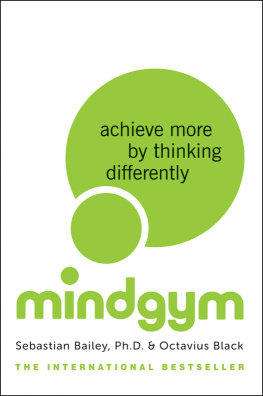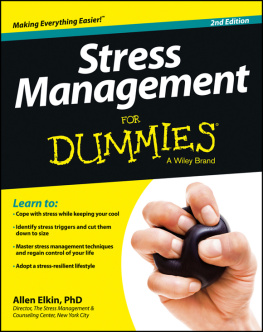Table of Contents
INTRODUCTION
At some point, we've all done it. Whether it's going back on the commitment we made to ourselves, backtracking on priorities, or just sheer procrastination, we've all at some point self-sabotaged. And once we've done it, we're more likely to continue that same bad habit. It's time for you to unfuck yourself keep reading to find out how!
Studies show that people with a high level of "self-control" do not continually struggle with temptations they simply rely on good habits.
The best first step is to replace the old, negative habits with new, positive ones, and it takes just 18-66 days to build a brand-new habit!
Imagine it this way: it's much easier to substitute a bad habit with a good one than to stop doing a bad one.
Here are 5 Common Ways You Self-Sabotage and How to Unfuck Yourself :
1. Self-Sabotaging Statement: "I don't have the time." Most people will say they're busy. In a study of 10,000 adults, about half of the young people (aged 18 to 34) said they usually overstate their busyness to others.
Despite how "busy" you are, you're never too busy to brush your teeth or shower daily. You make room for these important issues. So, the things you "have no time for" are just things you find to be non-essential.
How to stop: Schedule a time to do stuff on your list, but also re-write the phrase in your mind. Instead of "I don't have time to do that," say, 'It's not my priority.' That will help you decide what you're going to make time for and what's not important to you at the moment. (Example: 'It's not a priority to call my grandma today' prompts more of a response than 'I'm too busy to call my grandma today.')
2. Self-Sabotaging Statement: "I'll deal with it later." "Later" is an abstract time frame that makes room for failure. If you had a brownie (or three) on your diet, you don't have to wait until tomorrow to start again. Simply start again, right there. We learn this continuously in meditation.
It's not exactly about having an empty mind; it's about getting back to the breath. Not "later," but right now.
Here's how you can stop: if it takes less than five minutes, do it right now. Dishes, the email you were supposed to send, pay a bill, thank a family member, etc. Such things have been on your mind for hours when they should be finished before the barista made your matcha latte.
For tasks that take longer than five minutes, spend five minutes to make a schedule on when you're going to do it and make sure you go through with it. It may be beneficial to set up a reward system or to get an accountability partner to help keep you on track.
3.Self-Sabotaging Habit: Comparing ourselves to other people.
It's usually said that "Comparison is the thief of joy." Comparison is so profoundly rooted in our culture from competing in sports or education to every fashion and beauty advert ever made. How do we get past it?
Here's how to stop: this is a profoundly personal approach that differs from person to person. I've had some great experiences with gratitude journals and claims that help me look at the big picture. They help to create positive emotions for the moment.
Another important thing to do is unfollow people on social media out there that don't make you feel good. I officially permit you to do so! I honestly don't care if they're the "best," most "inspiring" expert out there, if this person and their beautifully designed Insta-world make you feel terrible, then don't have them on your list!
4.Self-Sabotaging Habit: Creating unrealistic expectations.
Here's a scenario. Once upon a time, Mr. A had the ambition of reading one book a week. Yes, some people can achieve this feat with no hurry, but Mr. A is certainly not one of those people. So, when he made this impossible-to-achieve-target, he was probably disappointed in the first month when, despite the hurry, he couldn't finish his third book.
Here's how to stop: be realistic. Check out your past habits in the area you're looking to develop. Your next move should look close to what you've already achieved baby steps. When you do so, break it down to the smallest steps you can think of.
You may find that there are more steps than you've known and that starting smaller might get the ball rolling. (Example: Triathlon. You may want to start running a 5k, but when you know that a 5k is 3.1 miles, and you've never run a mile, then maybe running a mile is a more realistic goal.)
5. Self-Sabotaging Habit: Analysis paralysis.
Analysis Paralysis occurs when we face a decision that we can't make. We assume we're logical when comparing facts or writing pros and cons lists. But, in the end, knowledge makes us useless, and it makes us emotionally or physically immobile.
Here's how to solve the problem:
just do it! I know. It's the toughest and the most difficult thing to do. If you could just "do it," you'd have done it! But I'm going to say it again: if it doesn't affect you or someone else, do it!
Don't create another list. Delete all delay mechanisms ('I'll do it later,' 'I'm too busy,' or all numbing forms of self-sabotage such as drug use or comfort eating) and choose the alternative that comes to you organically.
Measure the pros and cons. Well, be prepared, yeah. But don't let these issues hinder you from making a shift and developing mentally, physically, or emotionally.
Stop Self-Sabotaging and Unfuck Yourself!
Self-sabotage is a normal, preventable occurrence. Everyone does it, and there's no foolproof way to avoid it. Given these five examples, you can see that you can take bad behaviors, stop them in their tracks, and transform them for the better.
Start with self-consciousness. Find the root of the problem, and find a constructive way to put yourself on a more productive path.
What kind of self-sabotage have you experienced? How are you going to re-route this habit?
People are trapped in their heads all the time some of us more than others. Although it's good to think about life and inquire about yourself, the problem is that most of our thoughts aren't that positive. When we're in mind-wandering mode (i.e., "in our heads"), thoughts generally shift to what bills are due, why your wife was a jerk yesterday, why a coworker got credit for your work today, why you responded to a family member in a particular way, and so on. And, surprisingly, at times like this, when we're not focused on something, in particular, the brain's default mode network (DMN) is turned on, which means that the brain resorts to this kind of (worry-based) thought a lot of the time.
When your mind wanders in every direction from what you do, you are far less likely to feel satisfied. A Harvard study some years ago used a specially built iPhone app to ask people about what they've been doing at random times during the day, whether or not they've been thinking about the job, and how happy/unhappy they've been. The verdict was simple and became the title of the paper: "A wandering mind is an unhappy mind." So, to get out of our heads and back to the present is the answer. How to carry this out has been the subject of debate among psychologists for centuries, and philosophical debate for even longer.
Here are tried and tested (and science-based) approaches to help you get out of your head and back into your life.
1. Get ready to "go there."
This sounds like a way to do just the opposite of getting out of your head, but it doesn't. Keeping in contact with your internal stuff helps you to process it, enabling you to step on from it. The truth is that most people, particularly depending on your age group, have grown up with the idea that it's easier to cover your feelings than to talk about them. That, of course, is one of the most damaging things you have to take with you, because it means your thoughts never get processed they only loop around your head ad infinitum. But approaching them by talking about them (with friends or, better yet, with a psychologist) is one way to get away from them.










